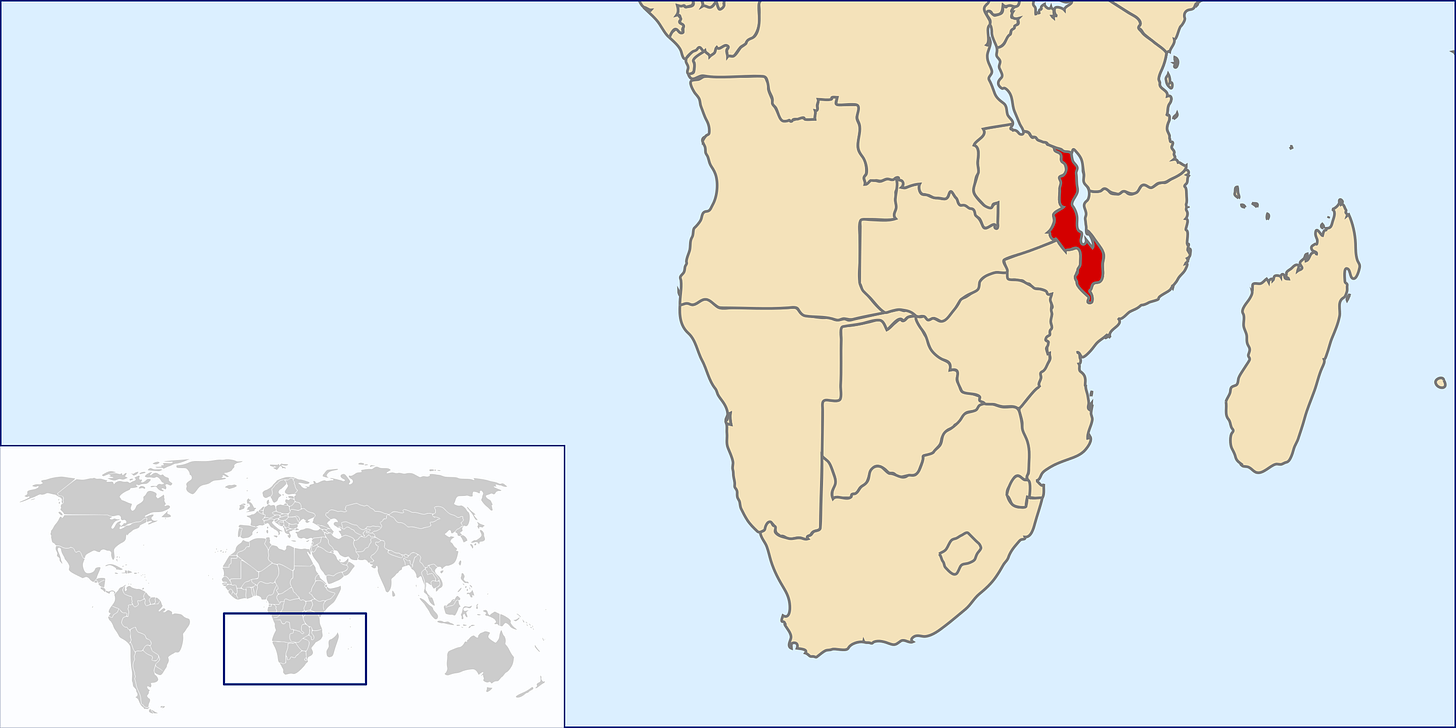🔅 Ghana's currency has fallen 72%
The cedi has fallen 72% in 10 months, with a 45% drop in 6 months.
Good morning ☕
In today’s issue, Malawi’s cholera cases have more than tripled, Nigeria’s floods have killed 500, and Ghana’s cedi has fallen 72%…
Markets
🔻 Nigerian SE: 47,531.84 (-0.07%)
🔻 Johannesburg SE: 64,528.23 (-0.09%)
🔺 Ghana SE: 2,461.71 (+0.00%)
🔺 Nairobi SE: 130.35 (+0.94%)
🔺 US S&P 500: 3,596.18 (+0.20%)
🔺 Shanghai Composite: 3,025.51 (+1.53%)
*Data accurate as of close of markets across the continent
Ivory Coast: A parasite known as "jasside" could reduce Ivory Coast's cotton output by up to 40% this year. Ivory Coast, the world's top cocoa producer, was among Africa's leading cotton exporters before civil war broke out in 2002. Its cotton sector has been recovering for the past decade. Jasside has previously attacked cotton crops, but this is the first time it has done so on such a large scale. Before this, output for the 2022/23 season had been expected to increase to 570,425 tonnes.
Global Markets: JPMorgan Chase CEO Jamie Dimon issued a warning yesterday for both the US and global economies, predicting a recession by the middle of 2023. The most concerning indicators, according to Dimon, are runaway inflation, high interest rates, quantitative tightening, and the fallout from Russia's invasion of Ukraine. He also predicted that the S&P 500 could fall another 20%.
ECONOMICS
Ghanaian Cedi fell by 72% in 10 months

The Ghanaian cedi has lost 72% of its value against the US dollar since the beginning of the year, with a 45% drop in 6 months.
This is despite Ghana's central bank raising its interest rate to a record high of 24.5% in an attempt to reduce inflation and strengthen the cedi.
Ghana is struggling with debt, 20-year-high inflation, a depreciating currency, and rising inequality. Inflation rose to 33.9% in August 2022, up from 9.7% the previous year. The Russia-Ukraine conflict and the COVID-19 pandemic have exacerbated its vulnerabilities.
Ghana's government was forced to seek financial assistance from the International Monetary Fund (IMF).
In order to be eligible for IMF assistance, Ghana will need to take action to restructure its debt if the new review finds that the country's debt levels are unsustainable. The Fund prohibits lending to nations with unsustainable deficits until those countries take action to restore their financial sustainability, which may include debt restructuring.
Ghana's total public debt stood at $54.4 billion (78.3% of GDP) in June 2022, up from $32.3 billion (55.5% of GDP) in 2017. External debt accounted for $28.1 billion (40.5% of GDP).
The outlook for Ghana's inflation remains bleak, and the Bank of Ghana is being forced to tighten policy further due to recent interest rate increases by central banks in high-income countries.
ACROSS THE CONTINENT
Other Headlines
🇲🇼 Cholera cases in Malawi have more than tripled in the last two months as authorities battle an outbreak that has killed more than 117 people. According to the UN, the number of cases in the country has increased from 1,000 to over 4,200 since August. Experts have warned that the onset of the rainy season in November could exacerbate the situation. According to World Health Organization data, this is the worst outbreak of the year so far. Malawi is currently experiencing one of its worst economic periods, with street protests sparked by fuel, electricity, and forex shortages, as well as drug and medical supply shortages.
🇬🇦 Carlyle Group is preparing to sell its Gabon-focused oil and gas producer, Assala Energy, hoping to raise more than $1 billion amid high global energy prices. Carlyle made its first investment in Assala in 2017 when it paid $628 million for Shell's Gabonese operations. In recent years, Assala has increased its production and reserves, and it now produces around 50,000 barrels per day. Soaring oil and gas prices over the last year provide an attractive backdrop for energy companies to sell assets, but the long-term outlook for fossil fuel prices remains uncertain as high-income economies transition to low-carbon energy.
🇳🇬 The number of people killed by floods in Nigeria has risen to more than 500 this year alone. More than 1,500 people have been injured, and 1.4 million people have been displaced. The West African country has been dealing with flooding since July. The floods have been blamed on heavy rains and climate change. They have been the worst in over a decade, and the level of destruction has raised concerns about food shortages in the region.
AROUND THE WORLD
Joe Biden Warns Saudi Arabia of 'Consequences' Following OPEC Oil Cut

President Biden says that Saudi Arabia will face "consequences" following its decision last week to cut oil production as part of an agreement with Russia amid the ongoing conflict in Ukraine.
Despite objections and lobbying from the White House, the OPEC+ group of oil-producing nations announced on October 4th that they had agreed to cut oil production by 2 million barrels per day in order to raise prices.
Saudi Crown Prince Mohammed bin Salman supported the production cut, arguing that the price of oil could fall too low. The decision may boost Russian revenue from oil sales.
FOOD FOR THOUGHT
Proverb of the Day
“By the time a fool has learned the game, the players have dispersed.”
— Ashanti Proverb.



